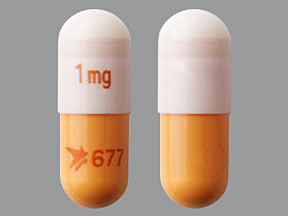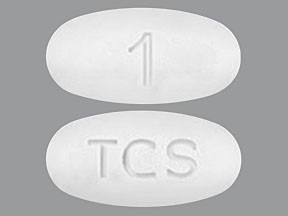TACROLIMUS EXTENDED-RELEASE - ORAL
PHONETIC PRONUNCIATION: (tack-row-LEE-muss)
COMMON BRAND NAME(S): Astagraf XL, Envarsus XR
GENERIC NAME(S): tacrolimus
Uses
USES: Tacrolimus is used with other medications to prevent rejection of a kidney transplant. This medication belongs to a class of drugs known as immunosuppressants. It works by weakening your body's defense system (immune system) to help your body accept the new organ as if it were your own.
How to use TACROLIMUS EXTENDED-RELEASE - ORAL
HOW TO USE: Read the Medication Guide and, if available, the Patient Information Leaflet provided by your pharmacist before you start taking tacrolimus and each time you get a refill. If you have any questions, ask your doctor or pharmacist. Take this medication by mouth on an empty stomach (1 hour before or 2 hours after a meal) as directed by your doctor, usually once daily in the morning. Talk to your doctor about how to take this medication if you have nausea or an upset stomach. If you take the extended-release capsules, swallow the capsules whole. Do not crush or chew the capsules. Doing so can release all of the drug at once, increasing the risk of side effects. If you take the extended-release tablets, do not crush or chew the tablets. Doing so can release all of the drug at once, increasing the risk of side effects. Also, do not split the tablets unless they have a score line and your doctor or pharmacist tells you to do so. Swallow the whole or split tablet without crushing or chewing. Dosage is based on your weight, medical condition, blood test results (for example, tacrolimus trough levels), response to treatment, and previous dose of tacrolimus (if switching from the form of this medication that is taken twice daily). Tacrolimus is available in different formulations (such as immediate and extended-release). Do not switch between different forms of tacrolimus without consulting your doctor. Do not increase your dose or take this medication more often without your doctor's approval. Your condition will not improve any faster and the risk of serious side effects may be increased. Also, do not stop taking this medication without your doctor's approval. Take this medication regularly in order to get the most benefit from it. It is important to take all doses on time to keep the amount of medicine in your body at a constant level. Remember to take it at the same time each day. Avoid eating grapefruit or drinking grapefruit juice while being treated with this medication unless your doctor instructs you otherwise. Grapefruit can increase the amount of certain medications in your bloodstream. Consult your doctor or pharmacist for more details. Since this drug can be absorbed through the skin and lungs and may harm an unborn baby, women who are pregnant or who may become pregnant should not handle this medication or breathe the dust from the tablets. Tell your doctor if your condition worsens.
Side Effects
Precautions
Interactions
Overdose
Images

- color
- orange
- shape
- oblong
- imprint
- 0.5 mg, logo 647

- color
- orange
- shape
- oblong
- imprint
- 1mg, logo and 677

- color
- grayish red
- shape
- oblong
- imprint
- 5 mg, logo 687
Reviews
Warning
WARNING: Tacrolimus lowers the body's ability to fight an infection/disease (immunosuppression). This effect may increase your risk of developing an infection or certain types of cancer (such as skin cancer, lymphoma). To reduce the risk of these serious side effects, take this medication at the lowest effective dose as directed by your doctor. Keep all medical and laboratory appointments. Tell your doctor right away if you develop any of the following: unusual skin changes, change in the appearance/size of moles, unusual growths/lumps, swollen glands, night sweats, unexplained weight loss, signs of infection (such as fever, persistent sore throat). This medication may increase the risk of death when it is used by women to prevent organ rejection after a liver transplant. Discuss the risks and benefits of this medication with the doctor.
Disclaimer
IMPORTANT: HOW TO USE THIS INFORMATION: This is a summary and does NOT have all possible information about this product. This information does not assure that this product is safe, effective, or appropriate for you. This information is not individual medical advice and does not substitute for the advice of your health care professional. Always ask your health care professional for complete information about this product and your specific health needs.

No Reviews Yet